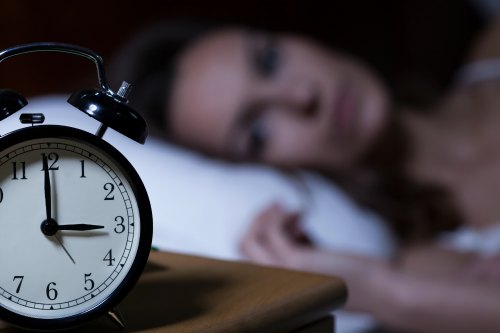Sleep Disorders: Types of Sleep Disorders, Symptoms and Causes

Since good sleep is of essential importance for optimal health, lack of sleep or disrupted sleep can seriously interfere with one's day-to-day life and cause both physical and mental damage. Sleepiness, laziness and dizziness are just minor consequences of sleep issues. The major consequences could affect your immune system, impact your overall health and your personal life.
Sleep is just as important as air, food and water for proper functioning of the human body, but every now and then, we struggle to fall asleep or get a good night sleep. It is very common and it happens to everyone. But if your struggles continue for several nights in a row, you may be suffering from a sleep disorder that requires your attention.
How to Identify if You're Dealing with a Sleep Disorder
Sleep disorders are conditions that affect your ability to sleep well on a daily basis. Since everyone experiences sleep issues from time to time, it can be difficult to tell if you're dealing with some sort of sleep disorder or it's just a result of a bad, stressful day. If you're experiencing any of the following symptoms on a daily basis, you're most certainly dealing with a sleep disorder:
You're having troubles falling asleep;
You're often waking up during the night;
You feel sleepy during the day;
You snore;
You still feel tired after an 8-hour sleep;
You're yawning a lot during the day;
You cannot go through the day without drinking a lot of coffee;
You're being told that you look tired often;
You're taking naps on a daily basis;
Most Common Types of Sleep Disorders and What Causes Them
There are a lot of sleep disorders that interfere people's sweet dreams and beautiful nightmares. Of about 95 recognized sleep disorders, some are much more common than others. Below are the most common types of sleep disorders, along with their symptoms and what causes them.
Insomnia: Insomnia, known as the inability to fall asleep, is the most common sleep disorder of all. This horrible condition can be identified by these symptoms: having difficulties falling asleep, waking up in the middle of the night and struggling to go back to sleep, having a non-refreshing sleep and lacking energy throughout the day. Insomnia can be caused by health conditions such as stress, anxiety, excessive worrying or depression. Unlike many other sleep disorders, there are many simple and easy solutions for insomnia without taking any prescriptions or visiting a sleep specialist. A few lifestyle changes could be all that it takes to fall asleep effortlessly and easily.
Restless leg syndrome (RLS): Restless leg syndrome, shortly known as RLS, is a sleep disorder that gives you a strong urge to move the legs, usually while resting, sleeping, driving or sitting for a long time. RLS normally occurs in the evening when you're trying to fall asleep, making it extremely challenging for you. This disorder can manifest itself in other ways, such as daytime sleepiness and lack of concentration. Also, RLS could give you uncomfortable sensations when you're moving or stretching. One easy way to tackle RLS is to take a walk around and shake the legs whenever it gives you a sensation.
Narcolepsy: Excessive daytime sleepiness and uncontrollable episodes of falling asleep during daytime could only mean one thing – you're suffering from narcolepsy. Narcolepsy is a neurological sleep disorder that is caused by the brain's inability to control sleeping and waking up. The so-called “sleep attacks” can occur anytime of the day, regardless of what you're doing (resting, running or driving). If you're starting to dream before you're deeply asleep, frequently losing control over your emotions or feeling paralyzed after waking up, you're suffering from narcolepsy and you should seek help.
Snoring: Snoring may not be a serious sleep disorder that can impact your health, but its potential to force partners to sleep separately is surely a serious threat. People who snore tend to have a poor quality sleep and are prone to be less alert during the day. This disorder is most common in men and overweight people, and it only becomes worse with age. Snoring can also be a sign of obstructive sleep apnea, which is a more serious sleep disorder.
Sleep apnea: With about 80% of Americans with sleep apnea, this is one of the most common sleep disorders. Put in simplest words, sleep apnea is when your breathing during sleep is interrupted. This occurs when the upper airways close and block the air flow. These pauses in breathing during sleep cause frequent awakenings during night, which results in you feeling tired throughout the day and being unproductive. If you're snoring too loudly, wake up commonly during night and wake up with a strong headache, chest pain or dry throat, you should seek help.